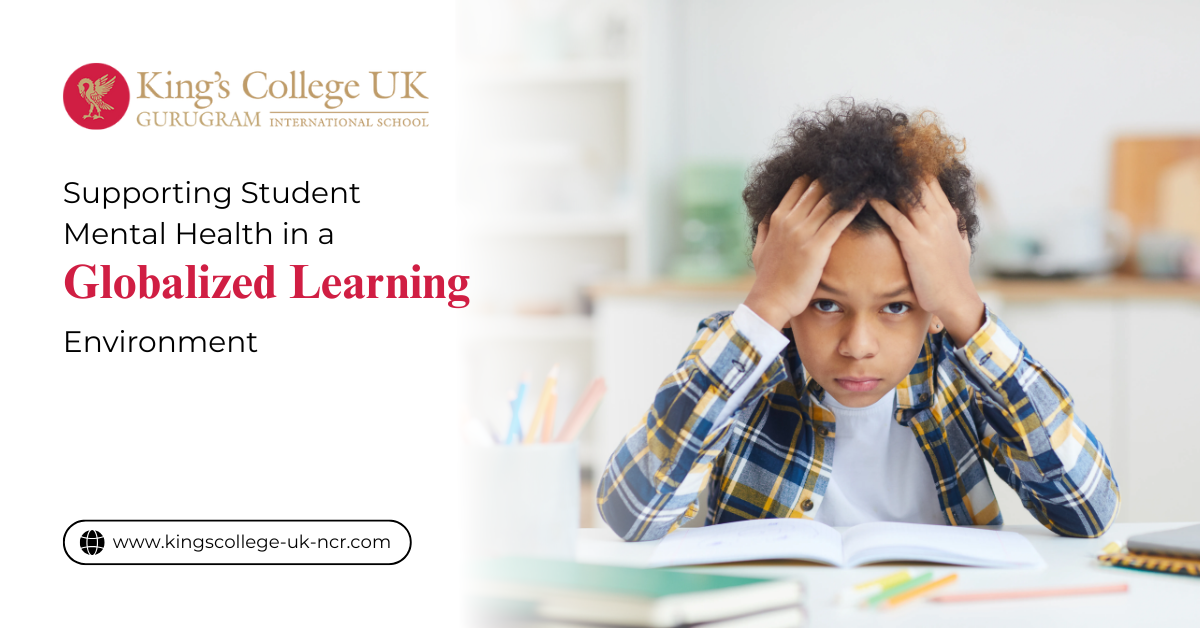
Education has transformed rapidly over the past decade. Classrooms are no longer confined by walls; they are connected through technology, culture and shared experiences. This globalised learning environment offers young people remarkable opportunities but it also brings fresh challenges, particularly when it comes to mental health.
From rising academic pressures and cultural transitions to balancing co-curricular activities with personal well-being, today’s students navigate a far more complex landscape than ever before. Addressing mental health is no longer a secondary concern; it is central to creating an environment where young people can truly thrive.
A New Understanding of Well-being
Not long ago, discussions around mental health in education were often reactive focused on crises rather than prevention. That is changing. Forward-thinking schools now recognise the value of proactive support.
This involves cultivating emotional intelligence, encouraging open conversations, and giving students the tools they need to manage stress before it escalates. Awareness programmes, peer mentoring and confidential counselling create spaces where students feel safe, understood and valued.
The Evolving Role of Schools
Schools have become far more than academic institutions. They are cultural bridges, preparing students to flourish in an increasingly connected world. For students adapting to new curricula, languages or cultures, schools must play a guiding role offering support that goes well beyond textbooks.
For example, King’s College in Gurugram embeds mental well-being into everyday school life. Here, emotional support is not an afterthought but a core part of the educational experience, allowing students to build confidence and resilience in parallel with academic achievement.
Building Emotional Resilience
One of the biggest pressures facing students today is the expectation to constantly excel. While ambition is healthy, unrealistic standards can lead to anxiety, stress and burnout. To counter this, many schools are implementing structured programmes focused on emotional resilience.
These initiatives often include:
- Encouraging mindfulness and reflective practices.
- Providing opportunities for peer connection and mentoring.
- Normalising conversations around stress, anxiety and self-care.
- Ensuring access to professional support when needed.
Such measures help students balance ambition with well-being, nurturing the skills they’ll need to thrive both inside and outside the classroom.
A Shared Responsibility
Supporting student mental health is not the responsibility of schools alone. Parents, teachers and communities must work together to build a consistent and compassionate support system.
Families searching for top international schools near me increasingly consider how well a school nurtures emotional health alongside academic excellence. This shift in mindset reflects a growing understanding that education is as much about developing well-rounded individuals as it is about exam results.
Rethinking Educational Priorities
As more families look towards the best schools in Delhi and NCR, they are prioritising institutions that foster inclusive, empathetic cultures. A strong academic reputation is no longer enough; parents want schools that understand the emotional needs of their children.
Likewise, many international schools in Delhi Gurgaon are placing well-being at the heart of their mission. They recognise that academic achievement means little without the emotional resilience to handle challenges and change.
The Future of Mental Health in Schools
Encouragingly, the conversation around student well-being is gathering momentum in India. A growing number of international schools in Gurgaon are adopting global best practices, integrating mental health strategies into their educational frameworks.
This shift marks an exciting evolution: a move towards more compassionate, student-centred education where emotional development stands on equal footing with academic success.
Closing Thoughts
Supporting mental health in a globalised learning environment isn’t a luxury, it’s a necessity. When schools embed well-being into their core values, they create spaces where students feel safe, supported and empowered to reach their full potential.
By fostering empathy, encouraging open dialogue and prioritising emotional resilience, educational institutions help shape not just successful learners, but thoughtful, confident and compassionate global citizens.

